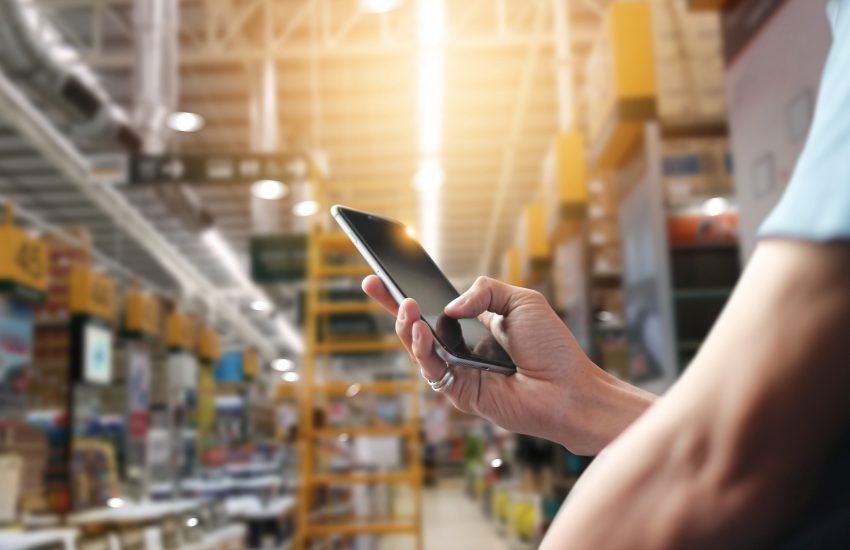Since the 1980’s, Global Positioning System (GPS) is known and used globally for the benefit it provides companies for its reliable, up-to-date information about the location. Although GPS has its applications in aviation, marine, military, and more, we focus on the use of this system in supply chain operations. GPS now has been a part of supply chain traceability, which involves an information system that provides more diligent and detailed tracking information of assets across a whole network of the supply chain. GPS thus benefits highly in logistics operations, especially for businesses dealing with fleet vehicles. This device has become a part of major services in logistics and transportation such as Uber, DHL, and FedEx.
Technological advancements are bringing added value to each product available in the market to make them faster, reliable, and transparent. GPS has been upgraded from a standalone system to becoming a feature or part of a broader product. IoT and Smart locks have together enhanced the track and traceability and allow the system to also secure the cargo in transit. This system is known as the electronic cargo tracking system (ECTS) which is gaining popularity in the market as the next step towards facilitating efficient logistic operations.
An electronic cargo tracking system is a smart lock connected to a cloud platform that is specially designed to secure the supply chain process and provide increased visibility for the stakeholders. The inbuilt GPS provides all updates which you might be familiar with such as:-
- Real-time Tracking
- Comprehensive Fleet Management
- Decreased Overtime
- Route Optimization
- The Decrease in Fuel Cost
- Regulate Vehicle Maintenance
Most of these benefits are efficiency related to assisting businesses to reduce costs and improve profitability. A business, however, requires more than just to optimize the route and vehicle use. A majority of the costs for businesses stems from the losses that occur due to theft and tampering while vehicles are in transit. Companies with constant movement and dense supply chain networks find it difficult to constantly keep a check on the vehicle movement and whereabouts. These data points have to be retrieved when an unwanted event occurs and data is needed to access the vehicle journey.
In the case of an electronic cargo tracking system, the entire transit is analyzed in real-time and every possible event is taken into consideration and tackled to provide a secure cargo journey. This brings opportunities such as:-
1. Real-time Tamper Alerts
This allows the company to be notified about suspicious movements during the trip, an unauthorized open of the lock, an attempt to break in, idle time spent, or route deviations. An opportunity to tackle such issues immediately is provided to the company irrespective of the number of vehicles at any point in the supply chain network.
2. Geofencing of Cargo
Access to goods by opening the lock can be restricted to pick up and drop locations or a route can be fixed for the vehicles. Any deviations from such settings will generate an alert to notify the company
3. Increased Accountability
The smart lock is accessible by a limited number of people, which can directly be held responsible with enough proof for access to the cargo or plan deviations. This narrow range can keep a check on in-house employees and their activities along with pinpointing the areas, which are attacked.
4. Securing the Cargo
As the product is a smart lock, it secures the closed-door vehicle through the hinges and doors and leaves no opportunity to access the goods without opening or damaging the lock. As the lock has no key, which can be replicated without the software records, it is not possible for any third party to have quick access without generating an alert.
5. Online Document Storage
The linked software allows trip documentation and details to be stored along with any other information such as driver details to be made available for information exchange or reference in the future.
This active device is an Internet of Things (IoT) product and best suited for inland movements. Such a security solution can be replaced with a passive RFID e seal for container security. The RFID e seal is a one-time use seal that has replaced the traditional bolt seal in container transportation. It provides the tamper status of the seal after every scan done at each checkpoint. E seal is the best of its kind product currently available in the market and is widely used in theft-prone markets for container movement via sea.
To sum it all, each business must identify what the need for their supply chain is, and can it be managed better with the same old GPS device or does it need an immediate upgrade to an electronic cargo tracking system or an RFID e seal or perhaps a combination of these solutions.
You can find solutions to all your track and trace requirements at Sepio Products Private Limited. Sepio has been working towards creating a secure and efficient supply chain with its patented RFID e seal and electronic cargo tracking system solutions with user-friendly cloud software that provides real-time insights into lowering your cost of logistics.
To know more in detail, drop an inquiry at hello@sepioproducts.com.

